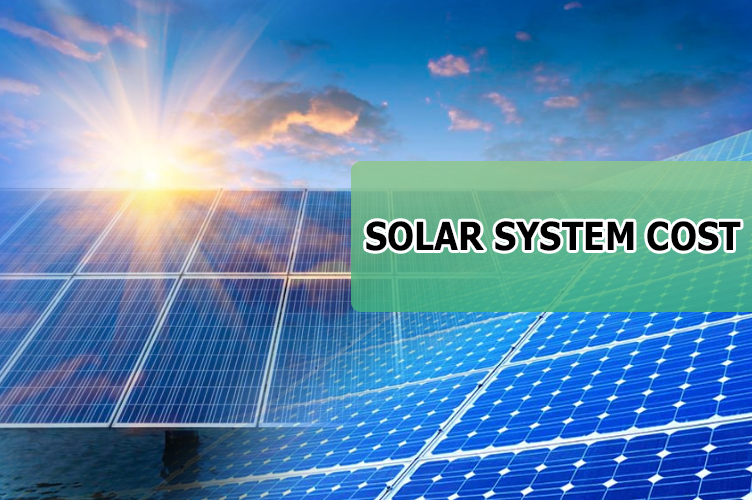Solar panels are the most essential component of a solar power system. There are other components that make up the system; however, the solar panel dictates the efficiency of the entire solar power system. The sun has enough energy to provide the electricity that we need. But the sun has always been there with this potential yet it did not automatically provide uses for electricity. There is a need to develop a system to tap from the sun’s energy. Not until recently, this fit seemed far-fetched. Research in this line that gave us solar panels which is the main source of tapping solar energy. The solar panel is the component that is designed to capture the UV (Ultraviolet) rays that are generated by the sun. This is then converted into an electron that generates the direct current (DC). The direct current (DC) is then converted into an alternating current (AC) using an inverter. The AC current is the electricity that is consumable. However, not all the sunlight will be converted to electricity by the solar panel; some will be left unconverted, which means, there is still some potential energy been unused. In other words, a signal panel is limited in the amount of solar energy it can convert to electricity. If you, therefore, need to produce electricity in a large quantity, you will have to combine solar panels so that one can make up for the other. This is where the question of panel efficiency comes in.
Solar panel efficiency: what you need to know

When we talk about the efficiency of a solar panel we refer to its ability to convert sun ultraviolet rays into electricity. All things being equal, when the same amount of sunlight shines on two solar panels, for the same time duration, the better efficient one will produce more electricity than the less efficient one. What this means is that if there are two panels A and B of the same size, subjected to the same condition of sunlight and it is found that panel A has an efficiency of about 21% while panel B has efficiency of 14% then panel A will produce 50% more electricity in kilowatt per hours than panel B which has a 14%. A higher efficiency rate means the panel has the ability to use or convert more solar energy. The more solar energy a panel can convert the less the number you will need to power your building.
Solar panel development has gone through many stages. The first set of panels produced were of little efficiency which means they could scarcely be used to produce electricity. They were not only of little efficiency, but they were also very expensive. This added to the difficulty of them having substantial commercial value. Many in the solar industry associate the efficiency of the solar panel to be the most important factor to assess a solar panel. As much as this is true, it is not the only factor. There is a need to consider the ability of the panel to convert at a low cost and supply at a high rate.
Most efficient solar panels:
With the realization of this fact, manufacturers have invested time and resources into doing proper research in order to increase the efficiency of the solar panels produced by them. As it stands this year, 2019, the solar panel with the highest efficiency rate is at 22.2%. Let’s see some of them and what rate of efficiency they have to offer:
- SunPower (22.2%)
- LG (21.1%)
- Panasonic (20.3%)
- Solartech Universal (20.2%)
- Silfab (20.0%)
The majority of the solar panel manufacturers out there offer an efficiency rate that is less than that of the top five. They offer between 15% to 17% efficiency rate solar panels. The top five solar panel manufacturers led by SunPower offer within the rage of 20% to 22% and this is the latest development. The challenge with the solar panels offered by the top five manufacturers is that they come with a higher price tag than that of the majority manufacturers. These top five will often be the favorite of anyone more concerned about efficiency over cost. The truth is that no matter the cost you moderately spend on the installation of a reliable solar system, you will eventually break even. And this will be in the early years of the life span of the solar system especially if you stay in an area where the cost of electricity is high and keeps rising.
Companies produce solar panels in large quantities. There will, therefore, be a disparity in the efficiency of the panels across the board. Most solar manufacturers produce solar panels in several models which will cause ranging in the efficiency of the solar panel. It is important to know that there is a difference between what we call the maximum efficiency rating of solar panel manufacturers and consistently maintaining the record across boards, meaning across the solar panels that were produced in mass. You need to know that for every manufacturer, there is the maximum efficiency record as well as the minimum efficiency record, and we have the average efficiency record which is the efficiency rating that the manufacturer consistently maintains over time. For example, LG has a maximum efficiency rating of 21.1%, however, the minimum efficiency rating for LG is 16.80%. From these two ratings, we have an average rating of 18.78% which is still a leading efficiency rating among other manufacturers, excluding SunPower which has an average rating of 19.96%.












